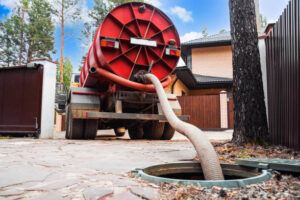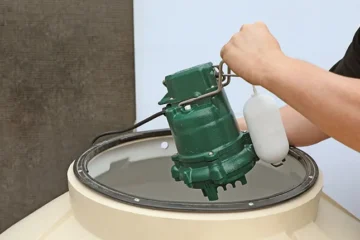Septic tank pumping is an essential service for many homeowners, especially those living in rural areas where municipal sewage systems are unavailable. Understanding the costs associated with this service can help you budget effectively and ensure your septic system operates efficiently. In this article, we will explore the various factors influencing septic tank pumping costs, average prices based on tank size, and tips on how to save money on maintenance.
The Importance of Septic Tank Pumping
Regular septic tank pumping is crucial for maintaining the health of your septic system. Over time, solids accumulate in the tank, which can lead to clogs, backups, and costly repairs if not addressed. On average, septic tanks should be pumped every three to five years, depending on usage and tank size. Neglecting this maintenance can result in significant problems, including environmental contamination and expensive repairs.

Factors Affecting Septic Tank Pumping Costs
Several factors can influence the cost of septic tank pumping:
- Tank Size: The size of your septic tank is the most significant factor in determining the cost. Smaller tanks (up to 750 gallons) typically cost around $300 to pump, while medium-sized tanks (800 to 1500 gallons) range from $225 to $500. Large tanks (2000 gallons or more) can start at $600 and may exceed $1,000 for extremely large systems.
- Location: The geographical area where you live can also impact costs. For instance, septic tank pumping in urban areas may be more expensive due to higher labor costs and demand. Conversely, rural areas might offer more competitive pricing.
- Frequency of Pumping: If you have a history of frequent pumping due to high usage or a malfunctioning system, you may face higher costs. Regular maintenance can help mitigate these expenses in the long run.
- Additional Services: Sometimes pumping includes additional services such as inspections or cleaning. Inspections can cost around $300 on average, and adding a camera-assisted inspection can double the price.
- Condition of the System: If your septic system requires more extensive maintenance or repairs, this will also affect the overall cost. A thorough inspection can help identify potential issues before they escalate.
Average Costs of Septic Tank Pumping
Based on various sources and regional data, here’s a breakdown of average septic tank pumping costs:
- Small Tanks (up to 750 gallons): Approximately $300
- Medium Tanks (800 to 1500 gallons): Between $225 and $500
- Large Tanks (2000 gallons or more): Starting at $600, potentially exceeding $1,000
In addition to pumping, homeowners should budget for regular inspections and maintenance, which can add another $100 to $900 every few years.
Regional Price Variations
Prices for septic tank pumping can vary significantly by location:
- Long Island, NY: $280 – $550
- Concord, NH: $250 – $350
- Jacksonville, FL: $240 – $400
- Denver, CO: $260 – $350
- Portland, OR: $500 – $900
- Boise, ID: $280 – $430
- Minneapolis, MN: $175 – $275
- Phoenix, AZ: $350 – $620
- Little Rock, AR: $250 – $500
- Milwaukee, WI: $170 – $300
These variations highlight the importance of researching local providers to find the best price for septic tank pumping.
Pumping by yourself or by professionals
While some homeowners may consider pumping their septic tanks themselves, it’s highly discouraged. The process involves handling hazardous materials and requires specialized equipment for safe disposal. Hiring a professional ensures that the pumping is done safely and in compliance with local regulations.
Most homeowners find that hiring a professional is more convenient and cost-effective in the long run. Professionals have the necessary tools and expertise to handle the job efficiently, reducing the risk of damage to your septic system.
Conclusion
Understanding the costs associated with septic tank pumping is vital for homeowners relying on septic systems. Regular maintenance, including pumping, is essential for the longevity and efficiency of your system. By being aware of the factors that influence costs and implementing smart maintenance practices, you can save money while ensuring your septic system operates smoothly. Whether you choose to pump your tank every few years or invest in regular inspections, making informed decisions will benefit both your wallet and the environment.
If you found our article helpful, we invite you to check out “How Often Should a Septic Tank Be Pumped?” There you will discover more important tips on this topic.



0 Comments